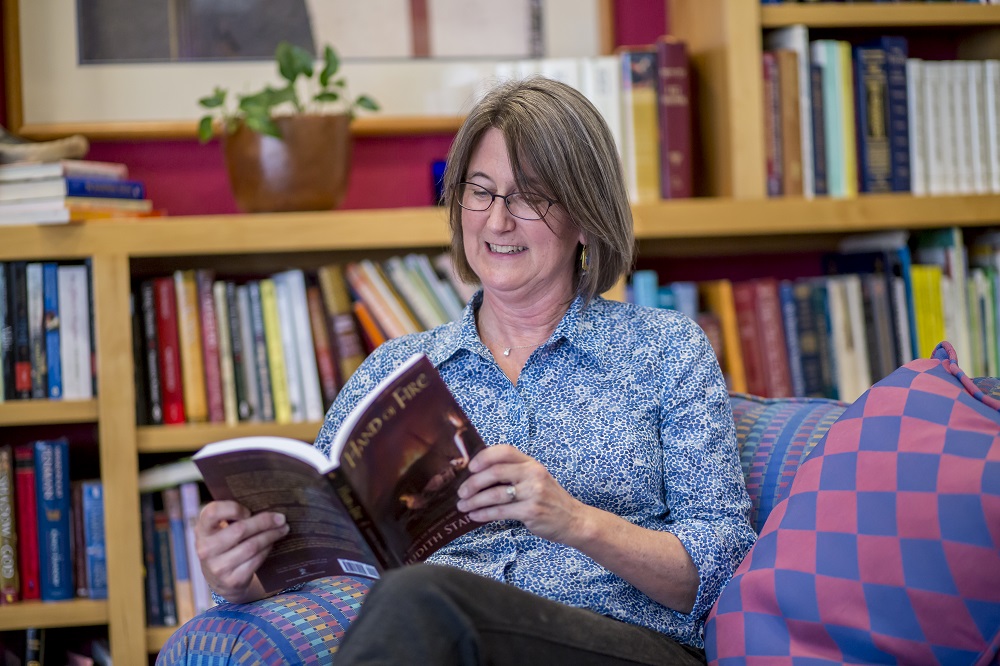
Imagine a love story between a beautiful princess and a handsome half-god warrior. It sounds perfect—until he murders her husband and three brothers, destroys her city, captures her and turns her into a slave. This is the tangle Homer created in his epic poem, The Iliad, casting Briseis as the prize sought by both Achilles and King Agamemnon during the Trojan War.
When Judith Starkston taught in the Tempe Union High School District, she found The Iliad a student favorite. “However, I was always puzzled,” she says. “Briseis is central to the plot . She is a young priestess from a city near ancient Troy. She falls in love with her arch-enemy, the Greek hero Achilles, and yet Homer gives her only a few lines.”
This curiosity is what encourages writers to create, and Starkston’s curiosity led to extensive research. She met archaeologists and learned about DNA from fire pit residue, yielding information about the meats, spices and herbs used by the ancient Hittites.
As the idea for a novel began to form, she toured the eastern Mediterranean, visiting museums and gaining access to Bronze Age archeological sites, including some in Turkey and the ancient site of Troy. Exploring the rocky countryside and ruined buildings, she memorized the steep mountains, the valleys and waterfalls, the views and smells of Mount Ida and the Aegean Sea.
This research was distilled into her debut novel, Hand of Fire, recently chosen as a semi-finalist for the prestigious M.M. Bennett Award for Historical Fiction.
“While my book is historically accurate, you don’t need to know anything about The Iliad to enjoy it. I wrote a broadly accessible novel, raising the big questions of love and war and friendship. It’s a tale about hope and resilience, strength even in the midst of violence.”
When asked about the language in her story, she says:
“Sometimes historical accuracy must be imagined. No one today speaks Hittite. I wanted to portray social classes and show those distinctions in their speech. I created a ‘grammar of mistakes,’ and referred to it as the characters moved through their story.”
She laughs and continues:
“It was fun to create swearing. For example, a Hittite in distress can’t cry out, ‘Oh, God!’ or ‘Hell!’ because those belong to the Christian world.
So I invented ‘What by Ishtar’s lions are you doing!’
If offering advice, Starkston suggests an aspiring writer find a community of writers.
“Writing is hard work. It’s grueling and financially unrewarding, with some notable exceptions. Without friends along the way, you’ll never make it.”
Hand of Fire, ISBN 978-1-61179-295-9, is available on Amazon and at many bookstores.

